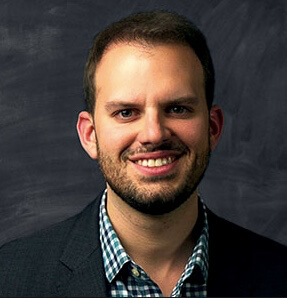The business events industry creates a massive economic impact during each meeting, convention, and trade show with spending on hotel rooms, taxis, and restaurants, but what happens when all those attendees return home? All to often, not much. Steve Garguilo, author of Surge: Your Guide to Put Any Idea Into Action, believes that the post-event timeframe makes it nearly impossible for those who attended a conference to implement what they learned back at their jobs.
 “The events industry has an action problem,” Garguilo said in the recent PCMA webinar “5 Proven Ways to Spark Action in Your Event Participants.” “When you’re at the event, you have an idealized vision of what you’ll be able to make happen. Then, when you get home from the event, emails have piled up. Reality sets back in with all the work you need to do, and the actual progress on those ideas can be very slow. Over time, the number of ideas starts to go down.”
“The events industry has an action problem,” Garguilo said in the recent PCMA webinar “5 Proven Ways to Spark Action in Your Event Participants.” “When you’re at the event, you have an idealized vision of what you’ll be able to make happen. Then, when you get home from the event, emails have piled up. Reality sets back in with all the work you need to do, and the actual progress on those ideas can be very slow. Over time, the number of ideas starts to go down.”
Garguilo noted that events and experiences are not simply about uniting people in the same location. “We don’t just bring people together to talk,” he said. “We don’t just bring people together to consume content. Ideally, we accomplish those goals, but we do it all because we want to see people doing things differently. The best event ROI is action.”
Choose Your Words Wisely
Increasing that ROI starts with the way you frame the conversation. Garguilo advised event organizers that it’s important to use active language in your communications, which may require eliminating one of the most commonly used terms in the industry. “We often think about people as attendees,” Garguilo said. “But attendee sounds passive. An attendee is someone who shows up to see what’s going on and perhaps meet some people. A participant, though, is someone who is fully engaged and fully immersed. They’re in it to be an action-taker.”
Instilling that participatory mindset can begin at the online registration page. “You can set expectations for action,” Garguilo said. “For example, it can be part of the sign-up process.”
Garguilo referenced events he has worked on that use application questions that require individuals to indicate why they should be part of the audience and how they will make an impact with the material from the program. The focus on action should continue once they’re on site, too.
“What are the words you’re using when you’re kicking off an event?” Garguilo asked. “For example, consider ‘The reason we are together today is because we want to see some amazing actions happen. As we go to lunch, let’s think about what actions we each want to take.’”
“Action,” Garguilo added, “can be the primary thing that you sell.”
Looking for more insights on how to turn your meeting into an action-oriented experience? Garguilo’s webinar is available for free with a PCMA Premium Content Subscription here.

